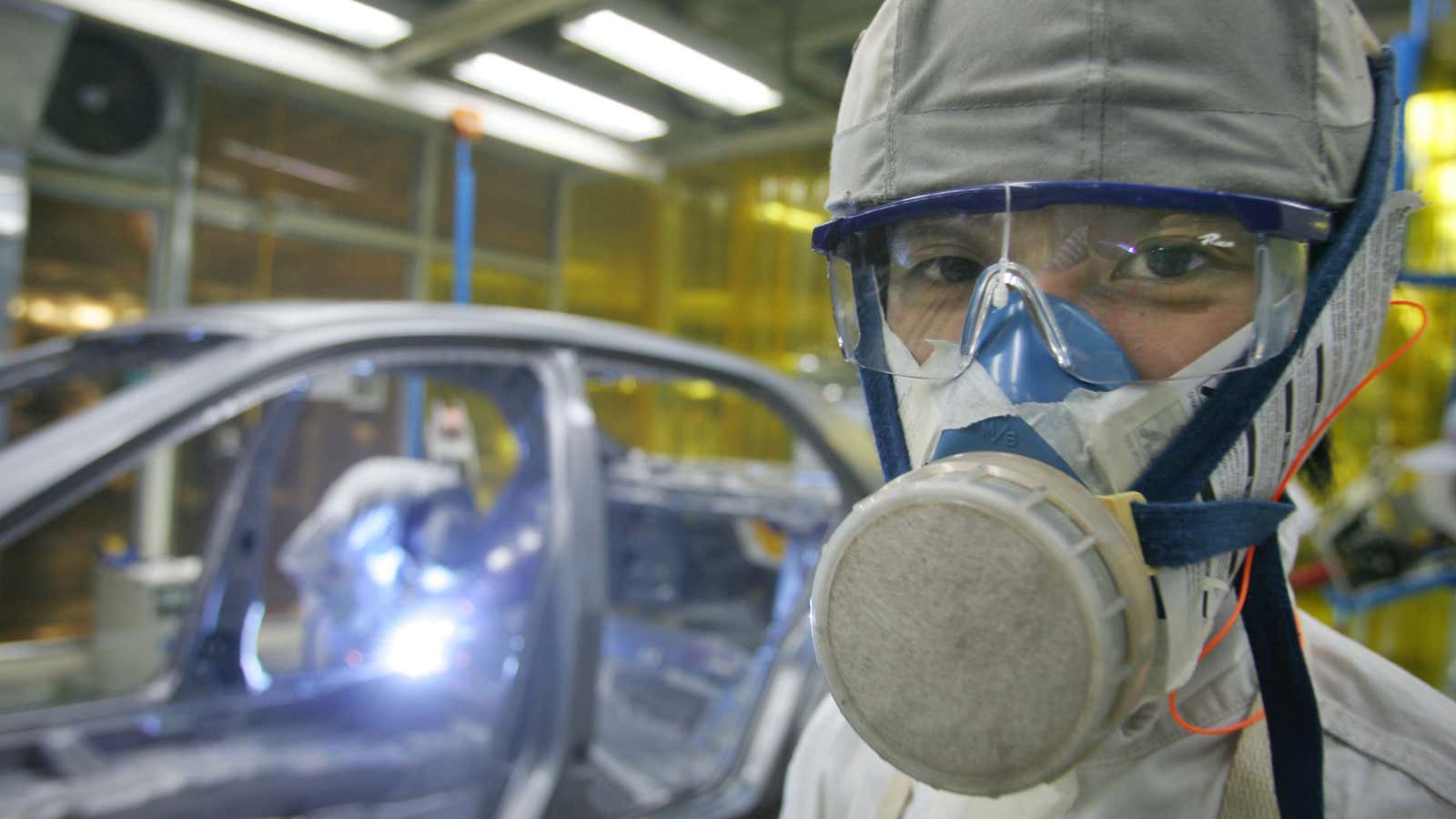China may now be able to call itself the world’s biggest trading nation, but the news on Tuesday of an unexpected slowdown in its gigantic manufacturing sector has rekindled worries that its second quarter growth will be slower than hoped, taking a toll on Asian stocks.
HSBC’s April 12-19 preliminary survey of manufacturers, called the Flash Purchasing Managers’ Index, fell to 50.5 from 51.6 a month earlier—well below analyst expectations of 51.6, and barely above 50, the level that separates expansion and contraction. The index has given up nearly all of its gains since February, when the PMI was 50.4.
The index was driven down in large part by a decrease in new export orders, along with employment and input and output prices. It’s not hard to see why: The economies of China’s main export partners – the European Union and United States – are fragile at best. The Eurozone is expected to return to economic growth in the second half of 2013, but only slowly. Meanwhile, the US is showing more promising signs as an increase in consumer spending has led economists to predict stronger growth, but questions remain about the housing market and persistent high unemployment.
The Shanghai stock exchange index was down 1.93% from its opening level at 11:15am on Tuesday. The Hong Kong Hang Seng index was down 1.06% at the same time, reflecting high sensitivity among investors to short-term economic indicators.
Hongbin Qu, HSBC’s chief economist for China, said that Beijing “is expected to respond strongly to sustain the economic recovery by increasing efforts to boost domestic investment and consumption in the following months”.
Yao Wei, an economist for Societe Generale SA in Hong Kong, told Bloomberg that the flash PMI “paints a picture of continued painfully slow recovery for China’s manufacturing sector. The government needs to help translate the easy liquidity conditions into real growth.”
